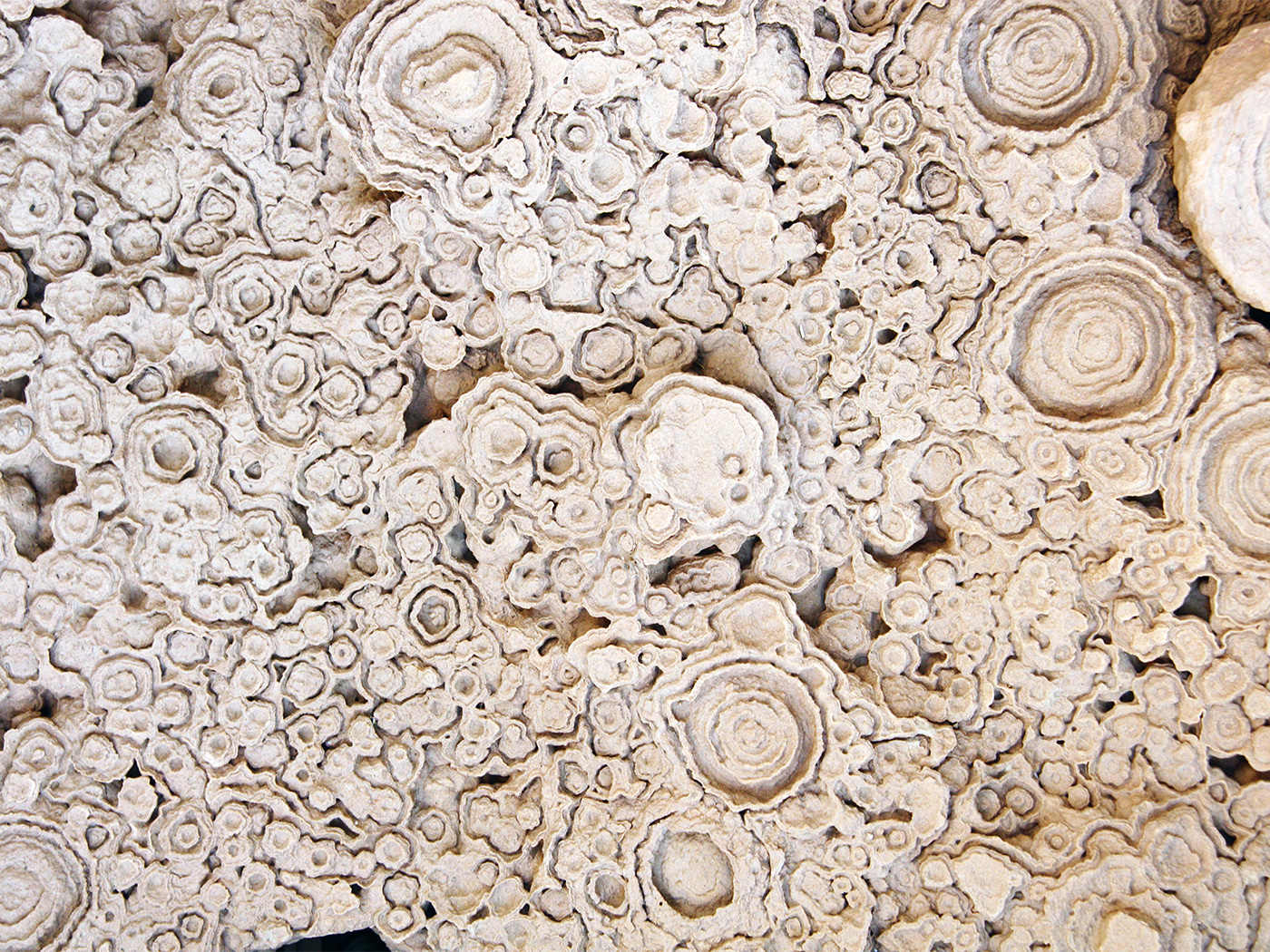The RATE Project
The RATE Project (Radioisotopes and the Age of The Earth) ends in 2005 after eight years of intense research and writing. The project was successful beyond all expectation in helping resolve the apparent conflict between the billions of years estimated by the conventional scientific community for the age of the earth and the thousands of years stated in the Bible. The results of this project will be reported in a final technical book, a lay summary, and a video documentary to be released at a conference in San Diego on November 5, 2005.
But what comes after RATE? Does ICR have intention of conducting similar initiatives in other fields? Will more studies be conducted to follow-up on the RATE results? Yes. ICR has been planning additional research for several years. However, ICR has not stressed these other projects until the completion of RATE in order to avoid compromising its financial support. In fact, several other research projects have been on-going at ICR for some time but not at the intensity or with such public awareness as RATE. For example, Dr. Austin has been conducting active research at Mount St. Helens and Grand Canyon for over 25 years; Dr. Vardiman has conducted climate research for more than 20 years.
Because the procedures for raising the awareness of our donors of the need for significant funds and for organizing a team of experts to conduct the RATE research were so successful, ICR has decided to use a similar approach for the other initiatives. We have organized the new research planned by our full-time research staff into six projects and given each project a title that hints at the main thrust. Table 1 lists the six research projects plus two video documentary projects. They are listed in the order of priority we believe to be appropriate.
New Research Projects
The GENE project has been given the highest priority because recent advances in the field of genetics (genomics) appear to offer a stunning opportunity to advance the concept of a recent, supernatural creation. Sequencing of the human genome and the genome of many other species has recently been completed and these data are available in the public domain to all researchers for interpretation. New equipment and software are available for research in this field at costs which are affordable by even the smallest laboratory.
The FAST (Flood Activated Sedimentation and Tectonics) project is a grouping of several geological subprojects in which Dr. Austin and others have been making significant discoveries for the past several years. He has documented a layer of billions of nautiloids within the Redwall limestone of Grand Canyon that extends over much of northern Arizona and into Nevada and eastern California. The implications of this find are staggering. It demonstrates that catastrophic processes killed nautiloids over a large region of the southwestern U.S. during deposition of limestone that is conventionally thought to have taken millions of years. Dr. Austin is in the process of publishing these results in standard journals and is now seeking to explain the dynamics of the burial process. These studies point to catastrophic processes associated with the Genesis Flood that could seriously challenge conventional geologic dogma.
|
Project
|
Brief Description
|
|
GENE |
Genomic studies to explore the true nature of human origins—theory of mutation and selection; statistical comparison of chimpanzee and human genomes; sequencing of mitochondrial human genomes to determine mutation rate in man; and estimation of the age of the human race from polymorphism rates, Y-chromosome diversity, linkage block size, and divergence of duplicate sequences. |
|
FAST |
Geological field research to discover, describe, and interpret catastrophic, Flood-activated sedimentation and tectonic processes. |
|
EPIPHANY |
Numerical simulations of catastrophic geophysical, geological, climatic, cosmological, and biological processes using a 40-processor computer cluster at ICR. |
|
RATE II |
Geochemical studies to strengthen the concept of accelerated decay with additional data to address new issues. |
|
COSMOS |
Theoretical studies in relativity and quantum mechanics applied to the history of the cosmos using Biblical boundary conditions to resolve apparent paradoxes. |
|
SPECIAL PROJECTS |
Sodom and Gomorrah, a geological survey of the Biblical Cities of the Plain, Butterfly, a continuation of metamorphosis studies, Biblical Word Studies, a continuation of Dr. Steven Boyd’s evidence for understanding the Bible literally, and the Column Project, a global analysis and visualization of the Genesis Flood using geological data. |
|
NAUTILOID DOCUMENTARY |
Video documentary about the results and significance of Dr. Austin’s Nautiloid research in Grand Canyon. |
|
GENE DOCUMENTARY |
Video documentary about the results and significance of Dr. Criswell’s genetics research. |
Table 1. New Research and Media Projects.
The EPIPHANY project exploits ICR's newly acquired 40-processor cluster computer to facilitate a major thrust in development and application of state-of-the-art numerical models to Creation/Flood related issues. Problems include catastrophic sedimentary processes, regional and global tectonic processes, and other geophysical phenomena associated with the Flood, paleoclimatic/ice age studies, early cosmos dynamics given non-Copernican boundary conditions, galaxy dynamics and development, effects of mutation and selection of genomic stability, and detailed human/chimpanzee genome comparison. The leader of this project is Dr. John Baumgardner who has more than 30 years of professional experience in large-scale numerical modeling, including 20 years in a computational fluid dynamics group at Los Alamos National Laboratory.
RATE II is a continuation of research on selected subprojects from RATE which need additional documentation. For example, RATE studied only rocks from the earth, and yet some important estimates of the age of the universe come from meteorite analyses. RATE II will include meteorites and also expand the data set collected by RATE on helium diffusion, isochron discordance, carbon-14 in diamonds, radiohalos, fission tracks, and potassium-40 in pre-Flood insects.
The COSMOS project is a theoretical effort to augment the cosmological model Dr. Humphreys proposed in his book, Starlight and Time. More work is required to establish this, or some other, Bible-based cosmogony as a preferred alternative to the Big Bang. He continues to explore such topics as photon trajectories and redshifts, rotation speeds of galaxies, the "Pioneer effect," cosmic background radiation, the tilt of the earth's axis, and volume cooling. He is also working on ways to interpret Einstein's theories of special and general relativity and quantum mechanics with visual models which would help resolve apparent "paradoxes" and provide unexpected insights into cosmology.
SPECIAL PROJECTS is a group of unrelated efforts which provide unique opportunities to advance the creationist agenda. They include subprojects like Sodom and Gomorrah, Butterfly, Biblical Word Studies, and the Column Project.
Media Projects
The NAUTILOID DOCUMENTARY and GENE DOCUMENTARY are media projects to convert scientific findings from the research into a form which the general public can readily grasp. All scientific research must be reported in technical journals for peer review. However, the non-technical public seldom sees these reports and is often unprepared for the terminology and detail offered in that venue. RATE invested about 10% of its budget in preparing a translation of the technical results into the language of the average person and visually into a video format so that its donors and other interested readers might more readily understand the results and significance of the research. The FAST project will be ready to begin production of a video documentary on the nautiloid discoveries by the spring of 2006.
|
Research Project
|
Principal Investigator(s)div> |
Budget for
2005/2006 |
Estimate for
full effort |
|
GENE |
Criswell
|
$150,000
|
$750,000
|
|
FAST |
Austin
|
$ 25,000
|
$150,000
|
|
EPIPHANY |
Baumgardner
|
$ 50,000
|
$300,000
|
|
RATE II |
Snelling
|
$ 30,000
|
$200,000
|
|
COSMOS |
Humphreys
|
$ 30,000
|
$200,000
|
|
SPECIAL PROJECTS |
Snelling
|
$ 20,000
|
$160,000
|
|
NAUTILOID DOCUMENTARY |
Rasche/Austin
|
$100,000
|
$125,000
|
|
GENE DOCUMENTARY |
Rasche/Criswell
|
|
$125,000
|
Table 2. Principal Investigators and Costs for New Projects.
The GENE project should be ready to begin production of a documentary by 2007 or 2008. Although the documentaries are not a direct part of the research, ICR believes they are a vital part of the entire project to close the circle on funding, research, and distribution of results.
Budgets and Expenses
Table 2 shows the estimated budget for the various research projects for FY2005/2006 and in total. The amounts shown were selected based on donations to the RATE project and a realistic estimate of the amount of time each researcher has available to work on the research. If more funds become available more time could be focused on a given project. The last column in table 2 shows the total cost for each project if it were conducted over the next five years. The schedule of time is heavily dependent upon the timing of donor investments. The dollar amounts for the full effort include costs of travel, per diem, and overhead.
Prospective donors are encouraged to write ICR and request a research prospectus for these projects. We have prepared a more complete description of each of the research efforts for which we need funding. Funds donated to research in general will be distributed by a new Research Council established to determine priorities. The overall priority is shown by the order of the projects listed in the tables, but the Council will adjust the distribution of resources if they are slow in coming. Donors are encouraged to submit funds to General ICR Research. This will allow the greatest degree of flexibility in conducting the research. The funds will be maintained in a restricted account and be spent only on research. However, if you wish to be more explicit, you may designate the monies for a specific project or subproject. If you have questions or would like a synopsis of a particular research project, please write or call Dr. Larry Vardiman at LVardiman@icr.edu or 619/448-0900.
* Dr. Vardiman is Chairman of the Astrogeophysics Department at ICR and Chief Operations Officer.


















